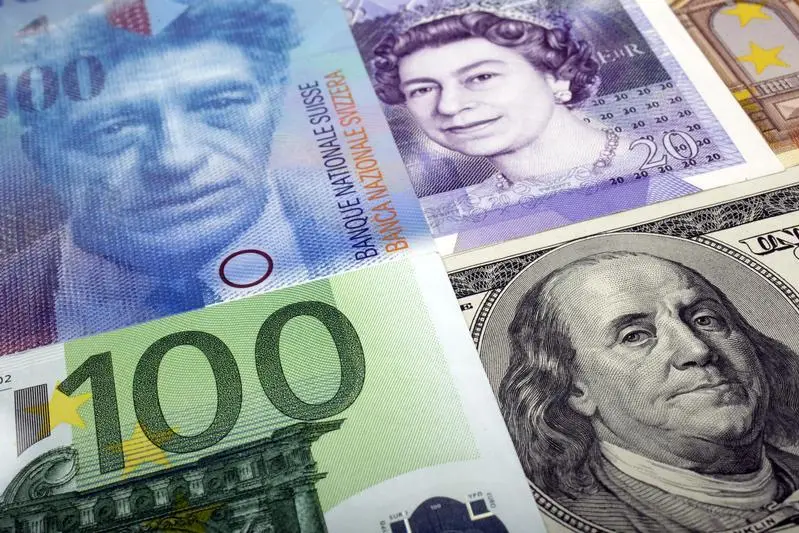PHOTO
By Jemima Kelly
LONDON, Oct 20 (Reuters) - Sterling edged down on Thursday after two consecutive days of gains on a trade-weighted basis, with worries about the manner in which Britain could leave the European Union keeping buyers away from the currency.
Data showing British retail sales recorded their strongest quarter of growth since late 2014 in the three months to September, with consumer sentiment remaining firm since June's Brexit vote, had little impact on the currency.
Economic data has played second fiddle to politics for sterling in recent weeks: there was also little reaction to data on Wednesday showing UK job creation slowed, but did not collapse, after the EU referendum.
More important to investors have been any signs that Britain might not undergo the "hard Brexit" -- in which access to Europe's single market would be sacrificed in favour of tighter controls over immigration -- they fear. Worries over such an outcome sent sterling to a record trade-weighted low last week.
Sterling was boosted on Tuesday, for example, after a lawyer representing the government in a High Court challenge over who has the right to trigger the divorce process between Britain and the EU said parliament -- not just the ruling Conservative government -- would "very likely" have to ratify any agreement.
"Given what we've seen over the last few weeks, politics rather than fundamental data is probably going to be the most important driver," said UBS Wealth Management currency strategist Geoffrey Yu.
"And from talking to clients, what's driving sterling at the moment is less short-term data -- people are starting to shift towards what can happen to the inflation trajectory and how's that going to impact the Bank of England outlook."
The pound edged down 0.2 percent to $1.2268
On a trade-weighted basis, sterling was 0.1 percent down on the day, having hit an 11-day high on Wednesday
Figures on Tuesday had shown the biggest monthly jump in British clothing prices in several years in September, and the retail sales data showed the smallest drop in stores' prices in just over two years.
Economists are concerned this marks the start of a longer-term trend of rising prices that will eat into consumer demand, after sterling fell more than 15 percent following June's referendum.
Concerns over inflation pushed yields on 10-year British government bonds
"The pound has been trading like an emerging market currency, with a higher and steeper nominal yield curve correlating to a weaker currency," wrote BNP Paribas strategists in a research note. "We think now is time to position for medium-term sterling rebound."
(Editing by Catherine Evans) ((jemima.kelly@thomsonreuters.com; +44)(0)(20 7542 7508; Reuters Messaging: jemima.kelly.thomsonreuters@reuters.net))





















